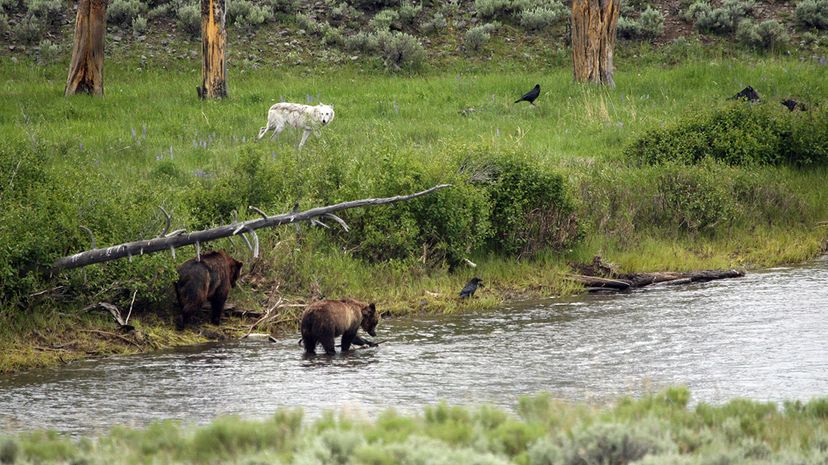
Yellowstone National Park, an idyllic and beautiful geographical gem situated in Wyoming, Idaho and Montana, hides a dark secret: a 50-mile (80-kilometer) patch of lawless land, known as "The Zone of Death," where anyone can commit a crime and go unpunished.
How is that possible? That's exactly what Stuff They Don't Want You To Know hosts Matt Frederick, Ben Bowlin and Noel Brown wondered, and they dig into the info in this episode of the podcast.
Advertisement
The area, dubbed "Zone of Death" was discovered by Michigan State law professor Brian Kalt, who was looking for a topic for a paper when he came across the unusual legal situation in Yellowstone. At first, Kalt planned to write about technicalities around the Sixth Amendment, which entitles every U.S. citizen to a speedy trial by their peers, with a jury selected of residents from where the crime took place. During his research he discovered the loophole that allows the Zone of Death to exist: It has no residents. The Zone of Death is located in a remote part of Idaho, and no one lives there, so it has no potential jury members.
Kalt was fascinated, but also horrified, by his realization. He'd discovered a place where criminals could escape punishment for crimes as heinous as murder. He redirected his research on the topic and published a paper in 2005 in Georgetown Law Journal titled "The Perfect Crime," but feared his work might inspire potential criminals.
So Kalt took matters into his own hands. Before his paper published, he sent his findings and research to legislators in Wyoming, but nothing happened. Only after his paper went public did he see any movement: Author C.J. Box wrote a novel in 2007 inspired by Kalt's findings. Republican Sen. Mike Enzi of Wyoming was a fan of Box; he read the book and contacted Kalt to discuss how to close this loophole. Congress could simply pass a law placing Idaho's portions of Yellowstone inside the District of Idaho. But 12 years after Kalt published his paper, nothing has been done to change the law.
It might seem far-fetched that a court would let a criminal go free based on a technicality, but one guy tried to do just that. Michael Belderrain illegally shot an elk in Yellowstone, and the government attempted to have him tried in Montana. His defense was that his Sixth Amendment rights would be violated by sending him out of the district in which the crime was committed. The judge threw out the defense, saying that sending him to a more populous district amounted to a "harmless error."
But the fact is that any violation of constitutional rights cannot be seen as a harmless error, as Kalt points out, and in a higher-stakes case, the defense would certainly not allow the court to throw out that argument without an appeal.
Of course there are plenty of problems to be solved by our legislative bodies other than hypothetical crimes that haven't been committed in a remote part of Yellowstone Park, but Kalt finds it hard to believe that they would wait for a person to be murdered before rewriting a few lines of the legal language guiding jurisdiction in Yellowstone.
You'll have to listen to the podcast to find out more about why the loophole hasn't been closed and what the Ninth Circuit courts have to do with the Zone of Death.
Advertisement
